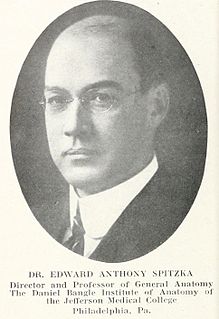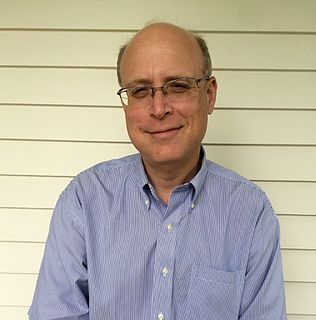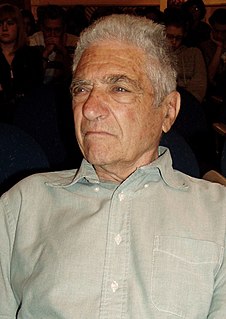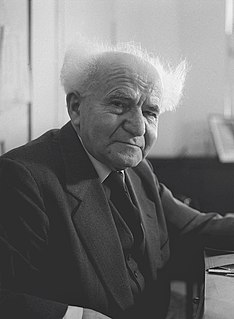A Quote by David Grann
Because many squid have brain nerve fibres that are hundreds of times thicker than those of humans, neuroscientists have long used them for research. These nerve fibres have led to so many breakthroughs in the study of neurons that many scientists joke that the squid should receive a Nobel Prize.
Related Quotes
Often we eat squid fried, so it's fun to grill it for a change. To grill squid, slice the cleaned bodies open into two flat pieces and thread them, along with the tentacles, onto skewers, then grill quickly over a direct fire with the coals as close as possible to the grate, turning the squid several times.
The relative importance of the white and gray matter is often misunderstood. Were it not for the manifold connection of the nerve cells in the cortex by the tens of millions of fibres which make up the under-estimated white matter, such a brain would be useless as a telephone or telegraph station with all the interconnecting wires destroyed.
National Review once opined, many years ago, that, every year, the Nobel peace prize should go to the U.S. secretary of defense: The American military is the number-one guarantor of peace in the world. But maybe something like a Nobel freedom prize would be a more appropriate award for Reagan than a peace prize.
Unlike the heart or kidney, which have a small, defined set of cell types, we still do not have a taxonomy of neurons, and neuroscientists still argue whether specific types of neurons are unique to humans. But there is no disputing that neurons are only about 10 percent of the cells in the human brain.
In truth a clear-headed physicalist shouldn't be thinking any of these dualist thoughts. If pains are one and the same as C-fibres firing, then there really isn't any possibility of having 'one' without the 'other'. Once you properly appreciates physicalism, this dissociation should cease to appear possible - C-fibres with pains should strike you as no more possible than squares without rectangles.
The pretention that some of us are better than others, I don't think is a very good thing. And who is contributing what to our progress in science is not so obvious and many who don't get that Nobel Prize are better than people... than some of us that do get the Nobel Prize. I think we should not be interested in prizes, we should be interested in learning about nature.
My hand moves because certain forces--electric, magnetic, or whatever 'nerve-force' may prove to be--are impressed on it by my brain. This nerve-force, stored in the brain, would probably be traceable, if Science were complete, to chemical forces supplied to the brain by the blood, and ultimately derived from the food I eat and the air I breathe.
Kripke says that physicalists like me can't explain the 'apparent contingency' of mind-brain identities. He maintains that, if I really believed that pains are C-fibres, then I ought no longer to have any room for the thought that 'they' might come apart. His argument is that, since pains aren't identified via some contingent description, but in terms of how they feel, I have no good way of constructing a possible world, so to speak, where C-fibres are present yet pains absent.
This life as a simple citizen and laborer has its benefits not only for the person himself but perhaps also for his country. After all, there is room for only one Prime Minister, but for those who make the desert bloom there is room for hundreds, thousands and even millions. And the destiny of the state is in the hands of the many rather than of a single individual. There are times when an individual feels he should do those things which only can and should be done by the many.
































